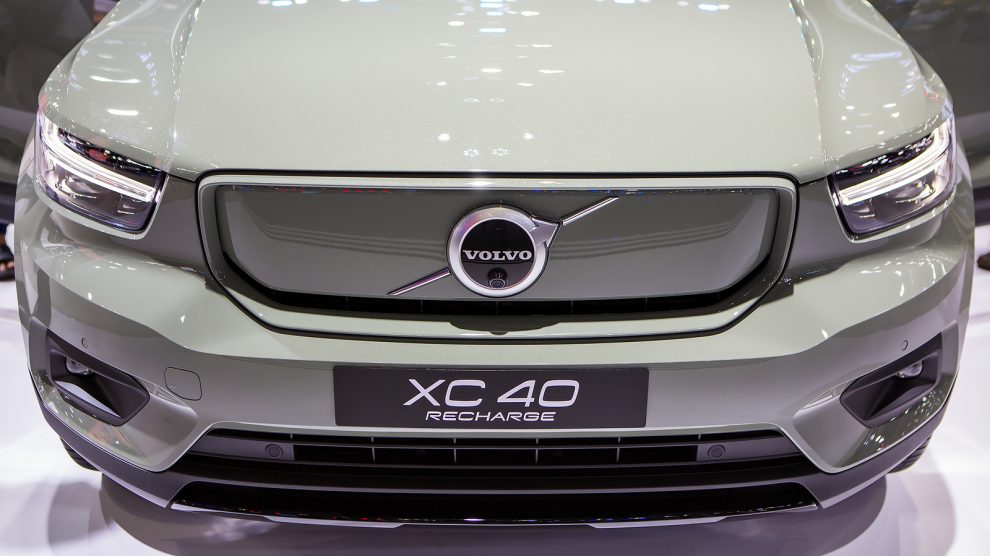Government incentives were a ‘key factor’ in Volvo’s decision to site its third European manufacturing facility – its first new European plant in almost 60 years – in Košice, eastern Slovakia.
Slovakia’s automotive sector received a boost on July 1 when Swedish auto giant Volvo announced plans to invest 1.2 billion euros in a new car manufacturing plant.
Volvo claims that the plant will be climate neutral and build only electric cars, underpinning the company’s ambition to become fully electric by 2030 and climate neutral by 2040, and to continue expanding its global production capacity to match its growth ambitions.
- Despite rising productivity, labour costs in CEE remain well below EU average
- In Slovakia, a flying car is cleared for take-off and mass production
- In CEE automation is not destroying jobs, it’s creating them, study finds
By picking Slovakia as the location for its new plant, Volvo says that it has created a “European triangle” of manufacturing covering its largest sales region – complementing a plant at Ghent in Belgium and another at Torslanda in Sweden.
It will be located close to Košice, in eastern of Slovakia, where it will benefit from a well-established automotive supply chain as it becomes the fifth car plant in the country, joining Volkswagen, Kia, PSA Peugeot Citroën and Jaguar Land Rover.
Volvo says it wants to move towards annual sales of 1.2 million cars by mid-decade, which it aims to meet with a global manufacturing footprint spanning Europe, the US and Asia.
“We have a clear focus on becoming a pure electric mobility brand by 2030, which is in line with our purpose,” says Jim Rowan, Volvo’s chief executive. “Expansion in Europe, our largest sales region, is crucial to our shift to electrification and continued growth. I am very pleased to expand our Volvo Cars production footprint into Slovakia and look forward to welcoming new colleagues and partners on the journey ahead.”
Slovakia’s largest industry
Car manufacturing is the largest industry in Slovakia, constituting around 13 per cent of GDP, 54 per cent of industrial production (compared to 33 per cent in Hungary and 31 per cent in Czechia) and 33 per cent of industrial exports.
Slovakia’s government, recognising the importance of the automotive sector to the country’s economy, welcomed the announcement.
“I appreciate that Volvo Cars has decided to build its new plant in Slovakia. The new plant is important for us since it will improve the social and economic situation in the region and produce only electric cars, which provides the Slovak automotive industry with a competitive perspective in the new ecological era,” said Prime Minister Eduard Heger.
Minister of Economy Richard Sulik added: “I am very pleased that Slovakia has succeeded in the competition for this mega investment, which will bring development and many jobs in the eastern part of Slovakia, with lots of direct and indirect job opportunities.”
Government incentives ‘key factor’
Construction of the Košice plant, designed to produce up to 250,000 cars per year, is planned to start in 2023, with equipment and production lines installed during 2024. Series production of next-generation, pure electric Volvo cars is scheduled to start in 2026.
As for the location, Košice offers good logistical and transport links to the rest of Europe and access to a good supplier base. Volvo says that incentives offered by the Slovak government were a key factor in the decision to locate the plant in Košice.
The establishment of the Košice plant represents the first new European manufacturing site for Volvo for almost 60 years. The Torslanda plant was opened in 1964, while the Ghent factory followed a year later. Together, these facilities can produce 600,000 cars per year.
Unlike many news and information platforms, Emerging Europe is free to read, and always will be. There is no paywall here. We are independent, not affiliated with nor representing any political party or business organisation. We want the very best for emerging Europe, nothing more, nothing less. Your support will help us continue to spread the word about this amazing region.
You can contribute here. Thank you.



